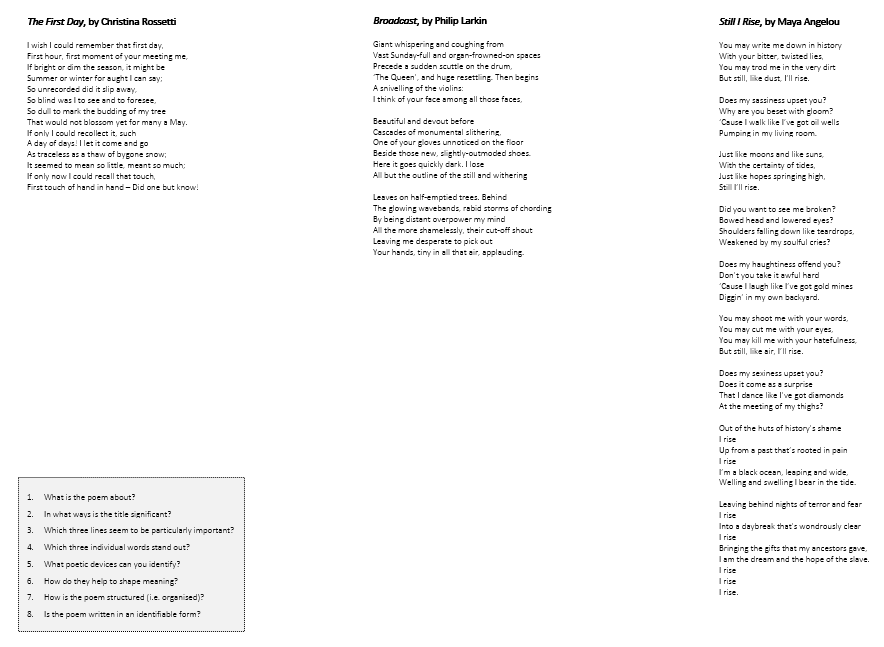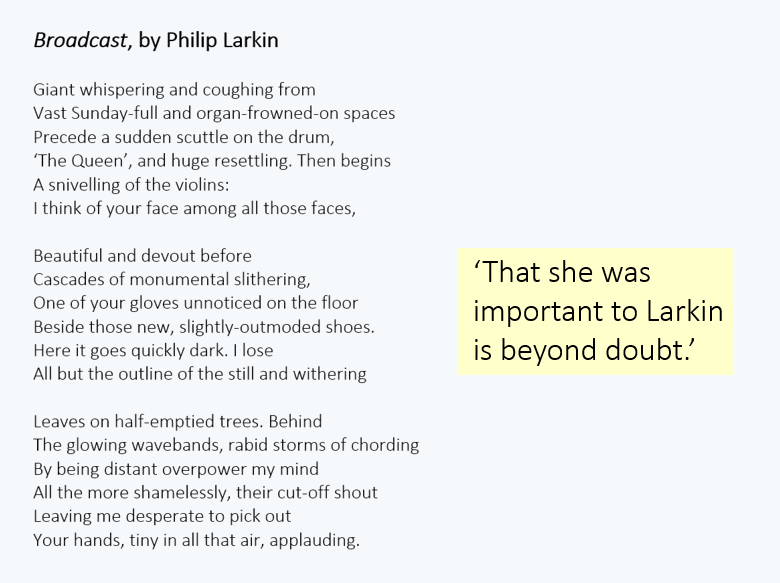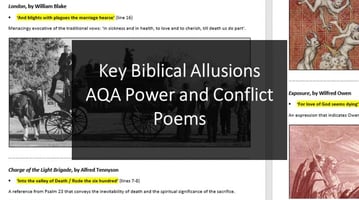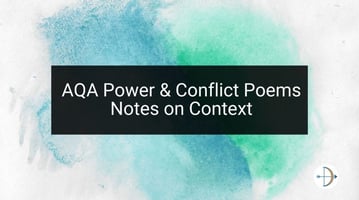Over the past few weeks, I’ve been looking at a series of war poems with one of my KS3 classes....
Teaching GCSE English Literature Unseen Poetry
In years gone by, I’ve tended to treat the unseen poetry component of the GCSE English Literature course as a bit of a ‘bolt on’ – something I’m more than a little bit ashamed to admit. Not this year though. Here’s a quick run-through of how I’ve approach the teaching of it so far.
I select poems that I know well and like, and that I think my class will also like. The six I’ve focused on so far are listed below. I’ve put them onto a single document, which you can access by clicking here.
- The First Day, by Christina Rossetti
- Broadcast, by Philip Larkin
- Still I Rise, by Maya Angelou
- Demeter, by Carol Ann Duffy
- Pike, by Ted Hughes
- The Eagle, by Alfred Tennyson
 To start, I usually display one of the poems on the board and ask students to consider the basics – what the poem’s about and what the main ideas that are, and so on. Slide below for reference.
To start, I usually display one of the poems on the board and ask students to consider the basics – what the poem’s about and what the main ideas that are, and so on. Slide below for reference.

After a brief discussion, I take the class through my interpretation of the poem and annotate it under a visualiser. I then hand over to them. Typically, I direct the students towards a poem that’s thematically linked and ask them to annotate it with the questions below in mind. After about 10 minutes or so, I ask for feedback.
- What is the poem about?
- In what ways is the title significant?
- Which three lines seem to be particularly important?
- Which three individual words stand out?
- What poetic devices can you identify?
- How do they help to shape meaning?
- How is the poem structured (i.e. organised)?
- Is the poem written in an identifiable form?
When that’s been done, I usually move onto some quick vocabulary work (e.g. reporting and analysing verbs or literary terminology) and then either embark on some planning or writing. If it’s the latter, I tend to provide some sentence starters like the ones below to help students shape their points.
- The poet suggests…
- This helps to clarify…
- The primary connotation of…
- The metaphor emphasises…
- The poet personifies…
- The form of the poem reflects….
- By comparison…
- Contrastingly, in the…
Thanks for reading –
Doug


.jpg?width=50&name=douglas-wise%20(2).jpg)



